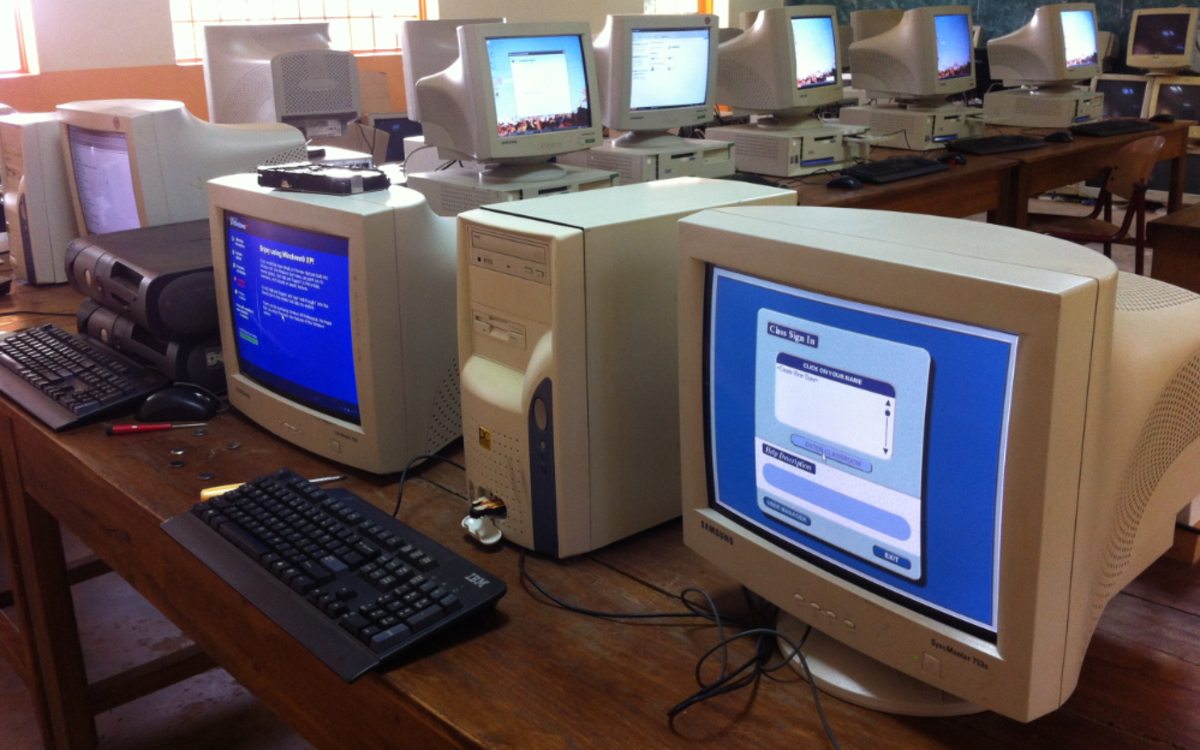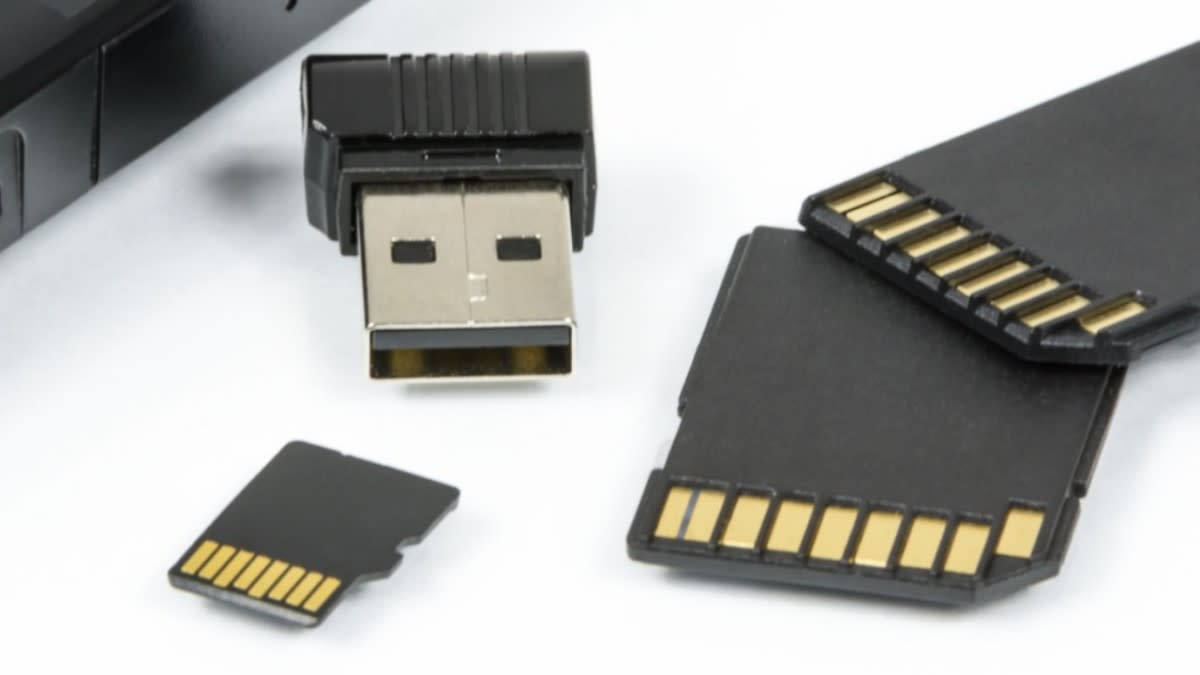Computer Education For Girls
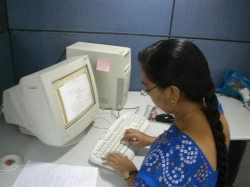
Computer and technology education is more important than ever
There are few women in the technology field today. In fact, the percentage of women has been steadily dropping since the mid 1980's. Girls should be encouraged to learn more about computers. They will naturally learn how to run computers but not how to control them. It is a sad fact that the number of women in college technology programs is dropping as well. We must reverse this trend for our daughters and granddaughters.
Often, the key to obtaining a computer education is via math and science. Encourage girls to enrol in these courses and to have fun with them. Be sure to emphasize that math, science and computers are not just for boys. There are many books and web sites available that have fun and fascinating insights into math and technology. Show girls the examples of successful women in technology listed below in this lens and elsewhere on the Internet. The earlier you get started, the better your girl's feelings will be towards computers.

Importance of computer education for girls
Technology offers lots of career choices
The first computer programmer was a woman, Countess Lovelace in 1842. She translated a mathematical text from French to English and added her program. Of course, between 1842 and about 1945, there was hardly any activity at all. Since that time, however, the computer technology industry has largely been dominated by men. Still, women have made amazing contributions to the field. Admiral Grace Hopper invented the compiler, a computer programming advance that allowed a simpler method of controlling computers. With it, people were able to declare program steps using a quasi-English specification. The compiler translated this into machine language that could be directly executed by computers. Admiral Hopper's compiler represented a great leap forward in the early days of modern computing.
Despite the contributions of Countess Lovelace and Admiral Hopper, and those by other women, the 21st century has seen a disturbing trend, (fewer women in computing), continue. Indeed, the number of women in the technology field peaked in the 1980's and has been declining ever since. Since the computer industry has expanded enormously in the same time period, women have excluded themselves from tens of thousands of career possibilities. These are generally well paying careers as well which translates into a large financial loss for women. With the computer industry poised to expand much more in the future, it is imperative that women claim a share of the career positions available. While it certainly is not too late for many adult women, real progress can be made educating young girls in the computer technologies.
Colleges and universities have begun to examine the problem of declining enrollments of women in computer technology. The causes are many but certain basics seem to apply more to girls than boys. Girls seem not to enjoy the tinkering aspects of computer workings as much as boys. Certain early operations, like graphical programming, can be fairly tedious without much relevance to real applications. Instruction for girls should concentrate on concepts and applications rather than the intricate working details. It is now a fact that much of the core functionality of computers can safely be ignored by programmers today. Rather than attempt to re-invent the history of computing, girls can be taught to use machines as purchased and extend them with their programs. The Alice programming language serves this purpose well. Girls can concentrate on building stories or games in a graphical environment. It provides objects, such as animated characters, that can be controlled by girls. The ability to create interesting and fun programs is quite easy with Alice. (Many boys also find Alice rewarding.)
Parents, especially, should realize that women have chosen to exclude themselves from many computer career opportunities. They should get involved with the education of their girls and help encourage them towards computer technology pursuits. It isn't even necessary for girls to learn to be expert computer programmers. A basic introduction to the available technologies will give them a base from which to venture into the computer technology world of tomorrow.
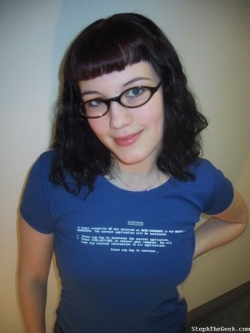
Geeks and girls
It's not bad to be a geek
Girls are naturally concerned with image. They spend a lot of their time on appearance, especially as they get older. As they get into their teenage years, they are extremely concerned about image and reputation. Many of them would be horrified to be identified as a geek. In fact, many girls will avoid certain subjects, (like math), or perform badly in them in order to ensure that they are not classified as a geek. This is a major problem. The best way to learn a subject is to be passionate about it. Then learning comes naturally. If the student avoids the subject or is concerned about what people will think of them, then it will be hard to learn that subject. While girls can be concerned with their image, they shouldn't fear any subject just because of what others will think. Besides, they could do a lot worse than become a geek.
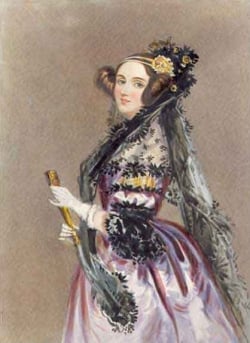
Role models for girls
Countess Ada Lovelace
Countess Ada Lovelace was the first person to write a computer program. She did so in 1832. Incredibly, the computer had been invented then, in theory but it was never successfully built. The Countess was able to put her thoughts into words and describe how the new computer could perform useful work steps. Even today, good programmers will design abstract computer steps on paper before being to use an actual computer. Countess Lovelace did this first.
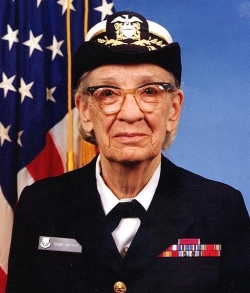
Role models for girls
Rear Admiral Grace Hopper
Rear Admiral Grace Hopper worked in technology during the early period of computer in the late 1940's. She was a navy reserve officer and worked on the most advanced computers then available. Her work established standards that were desperately needed to prevent the splintering of early programming languages into dialects.
Hopper also invented the compiler. This was a computer application that would read a file of computer instructions written in an English-like syntax and translate it into the core computer language. This development was responsible for the huge increase in productivity in the computer industry which started in the 1950's. Hopper was eventually promoted to Rear Admiral and was given a retirement discharge because of her age. In 1986, she then became a consultant to one of the largest computer companies operating at the time. Hopper was given the Defense Distinguished Service Medal which is the highest non-combat medal awarded by the Department of Defense. Upon her death, she was honored with interment at the Arlington National Cemetary.
Other women have made important contributions to the computing field. Roberta Williams worked on the original computer adventure games such as King's Quest. Sally Floyd was a pioneer in the infrastructure now used to deliver the Internet. Jeri Ellsworth is a self-taught computer chip designer. Girls should be encouraged to study the women in technology and the important contributions that have been made by women.

Why not be a geek?
You could do a lot worse
Girls are concerned that they might be classified as a geek if they study math and computer science topics. This is very unfortunate. First, to be afraid of what others think implies that the girls are at risk of being bullied. Parents should talk to school staff to prevent such worries. Second, geeks have a lot of strengths that serve them well. A large amount of money has been earned by geeks. Microsoft is a corporation worth billions of dollars. Geeks are confident. They know how to work with technology. They are practical. They are, (usually), less emotional. Geeks study hard, do well in school and are willing to help people with problems. They make great citizens.


